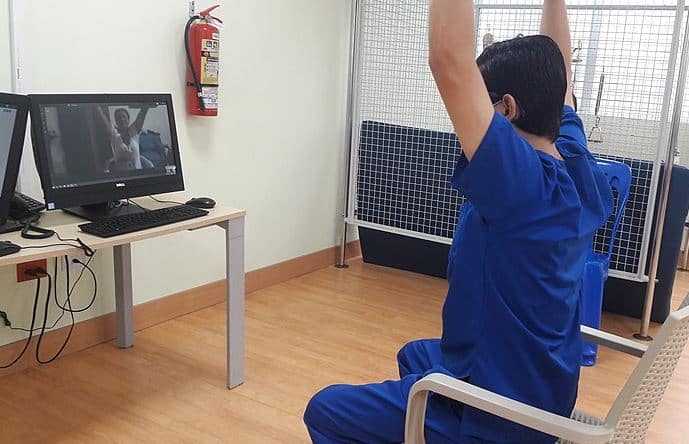Earlier Cardiac Rehab Program Shows Benefits for Heart Failure Patients

An innovative cardiac rehabilitation intervention started earlier and more custom-tailored to the individual improved physical function, frailty, quality-of-life, and depression in hospitalized heart failure patients, compared to traditional rehabilitation programs. Supported by the National Institute on Aging, part of the National institutes of Health, these new study results were published May 16 in the New England Journal of Medicine and also presented at the American College of Cardiology’s 70th Annual Scientific Session.
“Designing earlier and more personalized individual-specific approaches to heart failure rehab shows great promise for improving outcomes for this common but complex condition that is one of the leading causes of hospitalization for older adults,” said NIA Director Richard J. Hodes, M.D.
For this new study, a research team led by Dalane W. Kitzman, M.D., professor of cardiovascular medicine and geriatrics/gerontology at Wake Forest School of Medicine, Winston-Salem,N.C., followed 349 clinical trial participants with heart failure enrolled in “A Trial of Rehabilitation Therapy in Older Acute Heart Failure Patients”. Participants had an average of five comorbidities — diabetes, obesity, high blood pressure, lung disease or kidney disease — that also contributed to loss of physical function.
In an earlier pilot study, Kitzman and his colleagues at Duke University, Durham,N.C., and the Sidney Kimmel Medical College at Thomas Jefferson University, Philadelphia, Pa., found striking deficits in strength, mobility and balance, along with the expected loss of endurance in older patients with acute heart failure, the vast majority of whom were categorized as frail or pre-frail. The team decided to focus on improving patients’ physical function, which was already weakened by chronic heart failure and age.
The REHAB-HF team designed earlier and more customized exercise programs that emphasized improving balance, strength, mobility and endurance. They also began REHAB-HF during a patient’s hospital stay when feasible instead of waiting until the traditional six weeks after discharge. After release from the hospital, the study participants shifted to outpatient sessions three times per week for three months.
Compared to a control group that received usual cardiac rehab care, REHAB-HF participants showed marked gains in measures of physical functioning and overall quality of life, including significant progress in Short Physical Performance Battery, a series of tests to evaluate lower extremity function and mobility, and a six-minute walk test. They also had notable improvements in self-perception of their health status and depression surveys compared to pre-trial baselines. More than 80 percent of REHAB-HF participants reported they were still doing their exercises six months after completing their participation in the study.
The study did not show significant differences in related clinical events including rates of hospital readmission for any reason or for heart-failure related rehospitalizations. The research team plans to further explore that and other issues through future expansions of REHAB-HF into larger and longer-term trials with broader participant subgroups.























